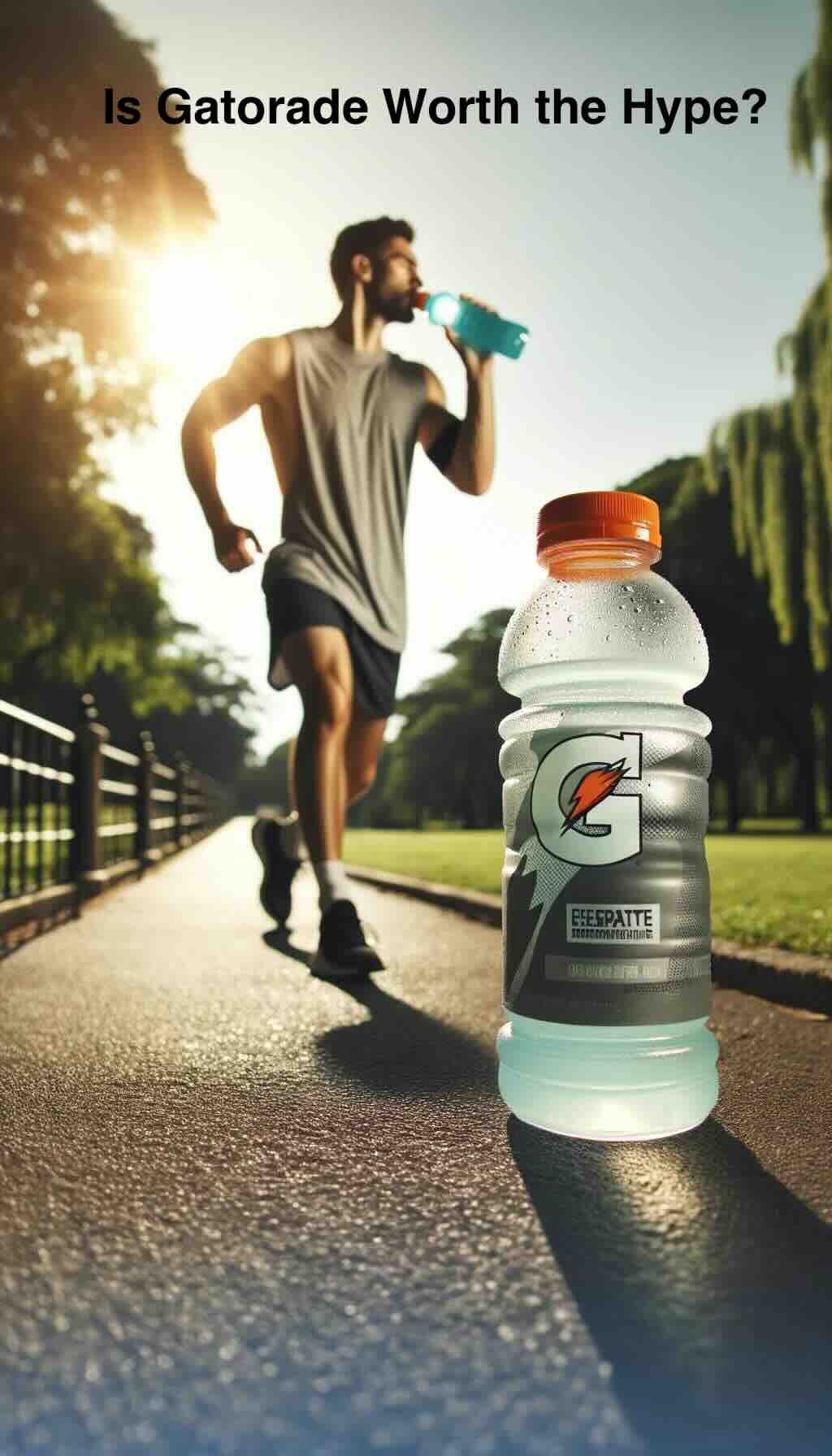
In the realm of sports and fitness, Gatorade stands as a beacon of hydration and performance. But as we dive deeper into its colorful waters, we uncover a blend of science, marketing, and evolving health consciousness. This guide peels back the label to reveal the essence of Gatorade, offering athletes and casual consumers alike a clearer view of what’s in their bottle.
The Genesis of Gatorade
Born in a lab to combat the dehydration of Florida Gators football players, Gatorade’s origin story is as compelling as it is well-known. What began as a quest for the perfect electrolyte balance has transformed into a global empire, synonymous with peak performance and athletic prowess. But beyond its legendary status lies a complex composition of water, sugars, electrolytes, and more—a concoction designed for those who push their limits.
Electrolytes and Energy: The Power Couple
At its core, Gatorade is a hydration powerhouse, crafted to replenish what the body loses during intense physical exertion. Sodium, potassium, and carbohydrates work in tandem to restore fluid balance and fuel muscles, making it an ally for athletes in the throes of competition. Yet, this electrolyte-energy duo raises questions for the everyday consumer. In a world increasingly wary of sugar intake, Gatorade’s high sugar content becomes a point of contention, highlighting the need for balance and moderation.
Science Speaks: The Hydration Debate
The scientific backing for Gatorade’s formula is robust, with numerous studies validating its efficacy in enhancing hydration and performance. The Gatorade Sports Science Institute (GSSI) itself is a testament to the brand’s commitment to research-driven solutions. However, science also reminds us that hydration is highly individual, influenced by factors like sweat rate, exercise intensity, and climate. Thus, while Gatorade shines on the field, its necessity off the field is less clear-cut.
Navigating the Marketing Maze
Gatorade’s marketing brilliance is undeniable, crafting a narrative that resonates with elite athletes and weekend warriors alike. Yet, as consumers grow more health-conscious, the scrutiny intensifies. The brand’s pivot towards “healthier” options, such as Gatorade Zero, signals a response to this shift, but it also opens a dialogue about what healthy hydration truly means.
Towards a Hydrated Future
As we stand at the intersection of hydration and health, the path forward is one of informed choice. For the athlete mid-marathon, Gatorade may indeed be the elixir of endurance. But for the casual gym-goer, water might just be the MVP. The key is understanding your body’s needs, the demands of your activity, and the implications of your choices.
Conclusion: Quenching More Than Just Thirst
Gatorade’s journey from the University of Florida’s sidelines to the global stage is a narrative of innovation, adaptation, and, ultimately, reflection. It challenges us to look beyond the label, to question and to choose with intention. In doing so, we navigate not just the world of sports hydration, but also the broader currents of health, wellness, and environmental responsibility.
As we reach for our next bottle of Gatorade, let’s do so not just in pursuit of hydration but as a conscious step towards understanding the fluid dynamics of our health and the planet’s well-being. After all, the true measure of a champion lies not just in performance but in the wisdom of their choices.
10 FAQs for Is Energy drink Gatorade Worth the Hype?
What exactly is Gatorade designed for?
Gatorade is formulated to hydrate and replenish electrolytes lost through sweat during intense physical activities, offering a mix of water, electrolytes (like sodium and potassium), and carbohydrates.
Can Gatorade improve my sports performance?
Yes, for athletes engaged in prolonged, strenuous exercise, Gatorade can help maintain hydration and energy levels, potentially improving performance and recovery.
Is Gatorade a healthy choice for everyone?
While beneficial for athletes during intense workouts, Gatorade’s high sugar content may not be suitable for everyone, especially for those with a sedentary lifestyle or sugar-sensitive conditions.
How does Gatorade compare to water for hydration?
Water is the best option for general hydration. Gatorade’s electrolytes offer added benefits for recovery during intense physical activity but are unnecessary for casual hydration needs.
What’s the difference between Gatorade and Gatorade Zero?
Gatorade Zero is designed to offer the same electrolyte balance as regular Gatorade but without the sugar, catering to those looking to reduce calorie and sugar intake.
Does Gatorade have any adverse health effects?
Consumed in moderation, Gatorade is generally safe. However, excessive intake, especially in less active individuals, can lead to excessive sugar and calorie consumption, impacting health negatively.
Are there alternatives to Gatorade for hydration?
Yes, coconut water, electrolyte-infused waters, and even DIY hydration drinks with water, salt, and lemon can provide hydration and electrolytes with less sugar.
How should I choose the right hydration drink for my workout?
Consider the intensity and duration of your workout, your sweat rate, and personal health goals. For most moderate exercises, water suffices; intense activities may benefit from electrolyte replenishment.
Is Gatorade environmentally friendly?
The production and disposal of plastic bottles present environmental challenges. Choosing products in recyclable packaging or using refillable bottles can mitigate some impacts.
Can children drink Gatorade?
In moderation, Gatorade can be safe for children engaged in prolonged physical activity. However, water should be the primary hydration source, with Gatorade as an occasional supplement for intense exercise periods.
Blog Tags
Gatorade, hydration, sports performance, electrolytes, health and wellness, sugar content, hydration alternatives, environmental impact, Gatorade Zero, workout hydration









